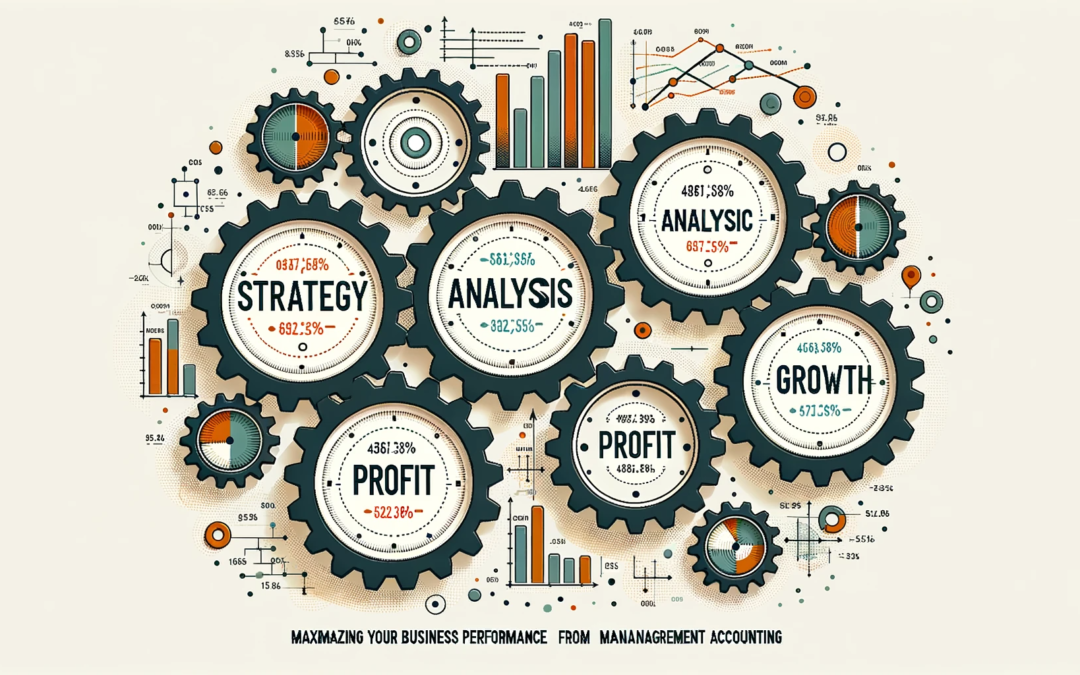Many business owners still measure business performance based on cash in
the bank. The first surprise comes when their BAS or superannuation
payment arrives. The major shock is when they must pay PAYG Instalment tax
in their second year of trading as they paid nothing towards their first-year tax
bill and now must start paying towards their second year too. Savvy business
owners have reporting systems that provide visibility of what is really
happening in their business.
Six things a business owner must understand:
1. Your real net profit per month. This is often not what your accounting
system tells you. You need to adjust for WIP, accruals, the matching
principle between revenue and expenses, depreciation, and accounting for
cash taken by business owners for personal use through mechanisms such
as recognising wages of business owners.
2. Cashflow. Not just what is in your bank now, but what will be there in 1
month, 3 months and at least 6 months.
3. Gross Margin being the profit made on the goods or services you sell,
before overheads like rent.
4. Gross Margin percentage of sales. What is your monthly gross margin
percentage of sales are month by month. If these are changing significantly
you should be asking questions.
5. Key performance Indicators such as wages as a percentage of sales,
number of new clients, your domain (website) score, employee morale, etc.
Progressive accounting firms such as Emerald Accounting help clients
customise these KPI’s.
6. Monthly performance of Actual versus budget. Yes, you need a budget first!
Ruchika at Emerald Accounting regularly helps clients develop budgets
and sees first-hand the difference the budget variance reporting delivers to
her client’s profitability,
Understanding and effectively managing your business performance is
essential for long-term success and profitability. Management accounting
provides practical tools and techniques that can help you track and improve
your business's financial performance.
Key Performance Indicators (KPIs)
One of the key aspects of management accounting is tracking and monitoring
Key Performance Indicators (KPIs) specific to your trade. These KPIs help you
assess the health of your business and identify areas for improvement. Here
are a few examples of KPIs that you can track:
Net Profit Margin: This KPI measures your net profit as a percentage of
sales. Tracking this KPI over time allows you to evaluate your
profitability and identify areas where you can optimise costs or increase
sales.
Gross Margin: Gross margin is another important KPI that measures
your gross profit as a percentage of sales. By monitoring your gross
margin, you can assess the profitability of individual projects or jobs and
adjust improve efficiency and pricing.
Tracking and Benchmarking Your KPIs
Monitoring KPIs monthly provides valuable insights into your business's
financial performance. It helps you identify trends, measure progress, and
make data-driven decisions. To further enhance your understanding, consider
benchmarking your KPIs against other similar businesses in your industry.
This allows you to see how your performance compares and learn from
industry best practices.
Budgeting and Variance Reporting
Another important aspect of management accounting is budgeting. Creating a
budget helps you set financial targets and plan for future expenses and
revenue. By comparing actual results to your budgeted figures, you can
conduct variance analysis to identify areas where you are over or under-
spending. This information empowers you to take corrective actions and
improve your financial performance.
The Wisdom of Industry Professionals
You may be missing out on valuable insights and profitability by not consulting
with professionals such Tom of Quinlan Tax. An experienced
accountant can provide expert guidance, benchmark your performance, and
help you optimise your profitability. They help you identify areas for
improvement, implement cost-saving measures, and make informed decisions
to drive business growth.
By incorporating management accounting practices into your business
operations, you can gain valuable insights into your financial performance,
optimize costs, and make informed decisions to drive growth.

